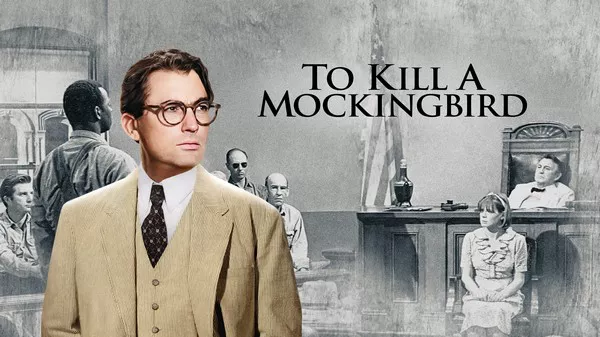American literature boasts a rich tapestry of novels that have shaped the literary landscape and captivated readers around the world. From timeless classics to contemporary masterpieces, these works reflect the diverse experiences, voices, and visions that define the American experience. In this article, we embark on a literary journey to explore the ten greatest American novels of all time, examining their enduring significance, cultural impact, and enduring appeal.
Top 10 Greatest American Novels of All Time
1. “To Kill a Mockingbird” by Harper Lee (1960)
Harper Lee’s “To Kill a Mockingbird” stands as a seminal work of American literature, tackling themes of racial injustice, morality, and empathy with profound insight and compassion. Set in the fictional town of Maycomb, Alabama, during the 1930s, the novel follows young Scout Finch as she navigates the complexities of race and class in the Deep South. Through the character of Atticus Finch, a principled lawyer who defends a black man falsely accused of raping a white woman, Lee confronts the harsh realities of racism and prejudice in American society. “To Kill a Mockingbird” remains a timeless classic, beloved for its vivid characters, evocative prose, and enduring message of tolerance and understanding.
2. “The Great Gatsby” by F. Scott Fitzgerald (1925)
F. Scott Fitzgerald’s “The Great Gatsby” is a lyrical exploration of the American Dream and the disillusionment of the Jazz Age. Set against the backdrop of the Roaring Twenties, the novel follows the enigmatic Jay Gatsby as he pursues wealth, status, and the love of his life, Daisy Buchanan. Through Gatsby’s extravagant parties, doomed romance, and tragic downfall, Fitzgerald captures the decadence and moral decay of post-war America. With its evocative imagery, vivid characters, and haunting themes of love and loss, “The Great Gatsby” remains a timeless masterpiece that continues to resonate with readers today.
3. “Moby-Dick” by Herman Melville (1851)
Herman Melville’s “Moby-Dick” is a sprawling epic that explores the themes of obsession, fate, and the nature of man’s relationship with the natural world. Narrated by Ishmael, a sailor aboard the whaling ship Pequod, the novel follows Captain Ahab’s relentless quest for revenge against the elusive white whale, Moby Dick. As the crew embarks on their perilous journey across the ocean, Melville delves into the complexities of human nature, morality, and the existential struggle between man and nature. With its rich symbolism, philosophical depth, and poetic prose, “Moby-Dick” is considered one of the greatest achievements in American literature and a timeless exploration of the human condition.
4. “Beloved” by Toni Morrison (1987)
Toni Morrison’s “Beloved” is a haunting exploration of the legacy of slavery and the enduring trauma of the African American experience. Set in the years following the Civil War, the novel tells the story of Sethe, a former slave who escapes to Ohio with her daughter, Denver, to start a new life. However, their past comes back to haunt them in the form of Beloved, a mysterious young woman who embodies the horrors of slavery and the weight of unresolved grief. Through Morrison’s lyrical prose and evocative imagery, “Beloved” confronts the brutal realities of slavery while exploring themes of identity, memory, and the quest for freedom. As a powerful meditation on the enduring impact of history and the resilience of the human spirit, “Beloved” remains a seminal work of American literature.
5. “The Catcher in the Rye” by J.D. Salinger (1951)
J.D. Salinger’s “The Catcher in the Rye” is a coming-of-age novel that has captivated generations of readers with its rebellious protagonist and candid exploration of teenage angst and alienation. Narrated by Holden Caulfield, a disillusioned teenager who has been expelled from prep school, the novel follows his journey through New York City as he grapples with the complexities of adolescence and the phoniness of adult society. Through Holden’s distinctive voice and keen observations, Salinger captures the restlessness and disillusionment of youth, while also exploring themes of innocence, identity, and the search for authenticity. Despite its controversial reception upon publication, “The Catcher in the Rye” remains a classic of American literature and a touchstone for readers navigating the tumultuous journey of adolescence.
6. “To the Lighthouse” by Virginia Woolf (1927)
Virginia Woolf’s “To the Lighthouse” is a modernist masterpiece that explores the complexities of human relationships, the passage of time, and the quest for meaning and connection in a rapidly changing world. Set on the Isle of Skye, the novel follows the Ramsay family and their guests as they navigate the shifting currents of their inner lives and outer world. Through Woolf’s lyrical prose and stream-of-consciousness narration, “To the Lighthouse” delves into the depths of human consciousness, memory, and perception, while also reflecting the social and cultural upheavals of the early 20th century. With its innovative narrative structure, psychological depth, and evocative imagery, “To the Lighthouse” remains a landmark achievement in the history of literature and a testament to Woolf’s genius as a writer.
7. “Invisible Man” by Ralph Ellison (1952)
Ralph Ellison’s “Invisible Man” is a powerful exploration of race, identity, and the quest for self-discovery in America. Narrated by an unnamed African American protagonist, the novel follows his journey from the racially segregated South to the streets of Harlem as he grapples with the invisibility and marginalization imposed upon him by society. Through Ellison’s vivid imagery and searing social commentary, “Invisible Man” exposes the hypocrisy and oppression of American society while also celebrating the resilience and humanity of its protagonist. As a groundbreaking work of African American literature, “Invisible Man” continues to resonate with readers for its profound insights into the complexities of race and identity in America.
8. “The Grapes of Wrath” by John Steinbeck (1939)
John Steinbeck’s “The Grapes of Wrath” is a sweeping epic that chronicles the struggles of the Joad family as they journey from Dust Bowl-ravaged Oklahoma to the promise of a better life in California. Set against the backdrop of the Great Depression, the novel explores themes of poverty, injustice, and the resilience of the human spirit in the face of adversity. Through Steinbeck’s vivid descriptions and empathetic portrayal of his characters, “The Grapes of Wrath” captures the harsh realities of life during one of the darkest periods in American history while also celebrating the strength and solidarity of the human community. As a timeless classic of American literature, “The Grapes of Wrath” remains a poignant reminder of the enduring power of hope and the indomitable spirit of the American people.
9. “Adventures of Huckleberry Finn” by Mark Twain (1884)
Mark Twain’s “Adventures of Huckleberry Finn” is a timeless classic that has captivated readers for generations with its humor, adventure, and incisive social commentary. Narrated by Huck Finn, a young boy navigating the Mississippi River with his friend Jim, a runaway slave, the novel explores themes of race, freedom, and the search for moral truth in a divided society. Through Twain’s richly detailed characters and vividly imagined settings, “Adventures of Huckleberry Finn” offers a scathing critique of the hypocrisy and injustice of antebellum America while also celebrating the friendship and humanity that transcend racial boundaries. Despite its controversial portrayal of race and language, “Adventures of Huckleberry Finn” remains a landmark work of American literature and a testament to Twain’s enduring legacy as one of America’s greatest storytellers.
10. “East of Eden” by John Steinbeck (1952)
John Steinbeck’s “East of Eden” is a sprawling epic that explores the complexities of family, morality, and the struggle between good and evil in the fertile Salinas Valley of California. Inspired by the biblical story of Cain and Abel, the novel follows the intertwined lives of two families, the Trasks and the Hamiltons, as they grapple with the legacy of their past and the pursuit of their dreams. Through Steinbeck’s vivid characters, richly textured landscapes, and timeless themes, “East of Eden” offers a sweeping portrait of American life and values while also delving into the depths of human nature and the universal quest for redemption. As a monumental achievement in American literature, “East of Eden” remains a timeless masterpiece that continues to captivate readers with its epic scope, profound insights, and enduring relevance.
Conclusion:
The ten greatest American novels highlighted in this article represent a diverse array of voices, genres, and themes, each offering a unique perspective on the American experience and the human condition. From Harper Lee’s searing indictment of racism in “To Kill a Mockingbird” to John Steinbeck’s epic exploration of good and evil in “East of Eden,” these timeless classics continue to resonate with readers for their powerful storytelling, richly drawn characters, and enduring themes. As we celebrate the literary legacy of these iconic works, let us honor their contributions to the fabric of American culture and the enduring power of the written word to inspire, enlighten, and endure across generations.
You Might Be Interested In:



























